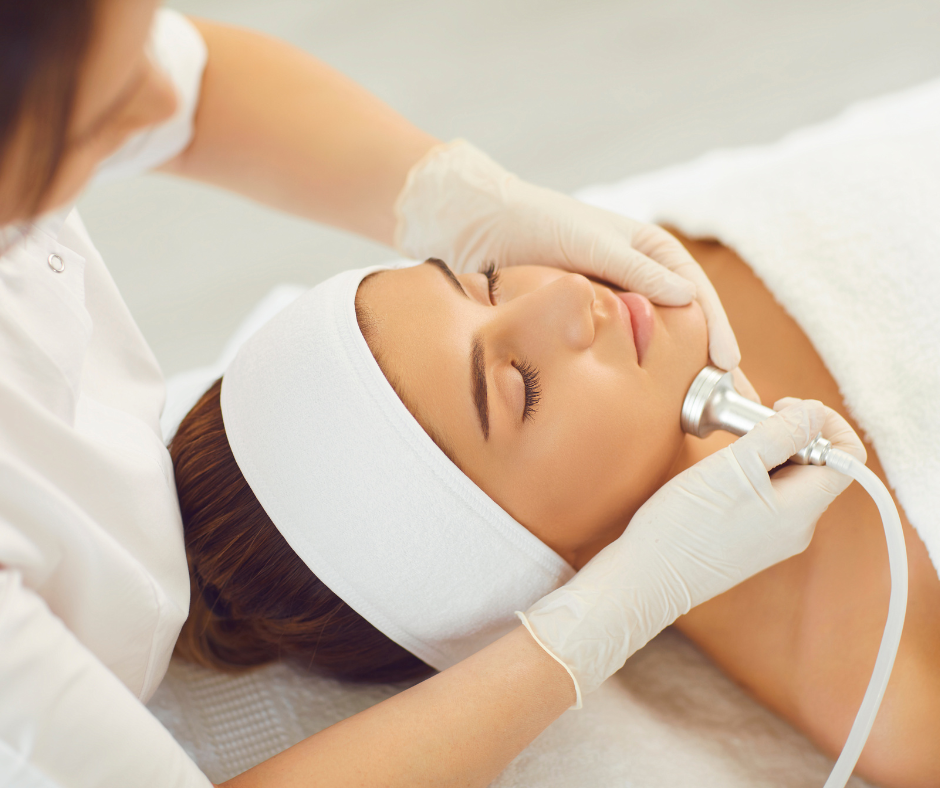
CONVENTIONAL ACNE TREATMENTS : What options do you have, possible side effects & more…
Acne, also known as acne vulgaris, is a chronic (long-term) skin problem when dead skin cells and oil from the sebaceous glands in the skin clog hair follicles.
Acne affects more than 40 million people, of which more than half are women; Acne usually starts at puberty and involves the face, chest, and shoulders.
The formation of non‐inflammatory lesions like blackheads and whiteheads characterizes the condition. There may also be inflammatory pimples, possibly resulting in scarring.
How can Acne be treated??
Acne can be treated conventionally with western medicines or by following a holistic route.
The Conventional or western treatment focuses on the short-term goal of relieving the acute inflammatory symptoms of Acne Vulgaris.
Despite undergoing rigorous clinical trials and approval processes, allopathic medicines or drugs are not categorically risk-free.
Sometimes these side effects are minor, but they can be severe on rare occasions.
Although each of these treatment modalities can help manage Acne, it is crucial for the patients & healthcare providers to be aware of their potential side effects, including ones that are most common and most serious, so that they can prescribe these medications safely.
I’ll explain the conventional/western treatment options available for Acne in this blog.
Various conventional medicines are used to treat Acne, as described in the diagram below:

TOPICAL:
Topical prescriptions are lotions, gels, and creams that you apply to your skin.
You generally apply these on your skin in the morning and before bedtime after washing your face.
Some are available over the counter, and others require a prescription.
Benzoyl Peroxide.
Benzoyl peroxide (BPO) is the first-line medicine for mild and moderate Acne due to its usefulness and milder side effects (mainly skin irritation).
Available in various strengths with a prescription or over-the-counter, benzoyl peroxide washes, creams, and gels can kill C. acnes, the bacteria associated with Acne, and help prevent pores from getting blocked up.
People can also purchase acne medications that contain benzoyl peroxide over the counter. The concentration of benzoyl peroxide in these products ranges from 2.5% to 10%.
Benzoyl peroxide is a chemical present in some bleaching; therefore, it can have a bleaching effect, so avoid getting it on your hair or clothes.
Side effects include increased skin photosensitivity, dryness, Redness, and occasional peeling. Sunscreen use is often advised during treatment to prevent sunburn.
Benzoyl peroxide is mildly helpful in treating Acne but is associated with more infrequent side effects. Unlike antibiotics, benzoyl peroxide does not seem to cause bacterial antibiotic resistance.
Topical Retinoids
Retinoids are structurally related to Vit A. Retinoids are used in medicine to regulate epithelial cell growth.
Retinoids help reduce inflammation, the clogging of pores, and sebum production.
Topical retinoids include adapalene, retinol, retinaldehyde, isotretinoin, tazarotene, trifarotene, and tretinoin.
These creams and gels can help to reduce the clogging of pores.
Do not apply tretinoin at the same time as benzoyl peroxide.
Topical retinoids increase your skin’s sun sensitivity, so they are recommended to use at night. They can also cause dry skin and Redness, especially in people with brown or Black skin.
Isotretinoin is an oral retinoid that is very effective for severe nodular Acne and moderate Acne that is stubborn to other treatments.
There are concerns that isotretinoin is linked to adverse effects like depression, suicidality, and anemia.
Worldwide, Medical authorities strictly regulate isotretinoin use in women of childbearing age due to its known harmful effects during pregnancy.
For a woman to be considered a candidate for isotretinoin, she must have a confirmed negative pregnancy test and use an effective form of birth control.
Azelaic Acid
Available as a gel or cream, this prescription medication kills bacteria involved in forming Acne and reduces the clogging of pores.
It is used for mild to moderate Acne due to its anti-inflammatory properties.
It has a slight skin-lightening effect due to its ability to inhibit melanin synthesis.
Side effects include skin redness and minor skin irritation.
Salicyclic Acid
Salicylic acid is an acid that is also present in the medication aspirin.
Salicylic acid opens plugged skin pores and promotes the shedding of epithelial skin cells.
It is available as wash-off and leave-on products.
People can buy acne products that contain salicylic acid without a prescription. Salicylic acid is in many wash-off and leave-on products in concentrations between 0.5% to 2%.
People usually tolerate salicylic acid well, but unfortunately, it has limited efficacy in treating Acne, and side effects include skin darkening and minor skin irritation.
Antibiotics
The most commonly used topical antibiotics for acne treatment are erythromycin, a macrolide antibiotic, and clindamycin, a lincosamide derivative.
These are available as solutions, lotions, gels, and saturated pads.
A dramatic increase in bacterial resistance has developed over the past few decades (primarily when topical antibiotics have been used as monotherapy), leading to a potential decline in their efficacy as acne treatments.
Therefore, antibiotics are often combined with benzoyl peroxide to reduce the likelihood of developing antibiotic resistance. Examples include clindamycin with benzoyl peroxide (Benzaclin, Duac, others) and erythromycin with benzoyl peroxide (Benzamycin).
ORAL MEDICATIONS:

Antibiotics
Doctors often prescribe topical (lotions, gels, foams) and oral antibiotics to reduce the number of potentially acne-causing bacteria. Frequently used antibiotics include clindamycin, erythromycin, doxycycline, and tetracycline. Antibiotics also have powerful anti-inflammatory properties, which the dermatologists want to utilise when prescribing antibiotics for Acne.
Oral antibiotics should be used for the shortest time possible to prevent antibiotic resistance. And they should be combined with other drugs, such as benzoyl peroxide, to reduce the risk of developing antibiotic resistance.
Oral Isotretinoin
This oral retinoid is usually reserved for severe cases of Acne, cases with scarring, or Acne that does not respond to all other therapies.
It is particularly effective in treating cystic and nodular Acne.
Potential side effects of oral isotretinoin include inflammatory bowel disease, depression, and severe birth defects.
All people receiving isotretinoin must participate in an FDA-approved risk management program. And they’ll need to see their doctors regularly to monitor for side effects.
Although there is no direct evidence, these products have also been linked to depression and even suicide in some people. They can also increase your chances of developing diabetes, liver disease, or heart disease if you have a family history of these diseases.
Isotretinoin products may also increase your skin’s sensitivity to the sun and cause reduced night vision, which can come on suddenly.
Hormonal Therapy
Women with Acne may be treated with the use of combined birth control pills can improve Acne.
Drugs used in the hormonal treatment of Acne fall into four categories:
1) Androgen receptor blockers (spironolactone, flutamide, cyproterone acetate), which block the effect of androgens on the sebaceous gland
2) Oral contraceptives, which suppress ovarian androgen production
3) Glucocorticoids, which cause adrenal suppression of androgen production
4) Enzyme inhibitors
They work by decreasing the production of androgen hormones by the ovaries and reducing the free and hence biologically active traces of androgens, resulting in lowered skin production of sebum and, consequently, reducing acne severity.
Androgen receptor blockers or Antiandrogen agents like Spironolactone (Aldactone) may be considered for women and adolescent girls if oral antibiotics aren’t helping.
Possible side effects include breast tenderness and painful periods.
Pregnant and lactating women should not receive antiandrogens for their Acne due to the possibility of birth disorders such as hypospadias and feminization of male babies.
However, spironolactone and cyproterone acetate’s side effects in males, such as gynecomastia, sexual dysfunction, and decreased bone mineral density, generally make their use for male Acne.
Combined oral contraceptives
The FDA approves four combined oral contraceptives for acne therapy in women who also wish to use them for contraception.
(Examples: Levonorgestrel, norethindrone, drospirenone).
Common side effects of combined oral contraceptives are weight gain, breast tenderness, and nausea. These drugs are also associated with an increased risk of cardiovascular problems, breast cancer, and cervical cancer.
This type of medication can also cause congenital disabilities if taken while you are pregnant. The potential side effects of oral contraceptives are venous and arterial complications.
SIN PROCEDURES:

Though not prescribed as typically as medication, a few medical procedures may be used to treat severe Acne. These procedures can all typically be performed in your doctor’s office, and they may be painful and, in some cases, cause scarring.
Drainage and extraction
During drainage and extraction, your doctor manually drains large cysts that form under your skin.
They remove fluids, dirt, pus, and dead skin inside the cyst to reduce infection and pain.
Antibiotics or corticosteroids may be injected into the inflamed cyst to speed healing and reduce the risk of scarring.
Steroid Injections. To treat severe forms of Acne, doctors sometimes inject corticosteroids into acne nodules and cysts to reduce inflammation. Acne scars are treated using various techniques, including dermabrasion, laser therapy, chemical peels, micro-needling, and fillers.
Light, Laser & IPL therapy
Laser therapy may also help improve acne infection. Laser light helps reduce the number of bacteria on your skin that causes Acne.
Light therapy is a treatment method that involves delivering certain specific wavelengths of non-collimated light (beams not lined up) to an area of skin affected by Acne.
Blue light is the first FDA-approved light treatment for Acne, which studies have shown to be more effective at killing acne bacteria than other wavelengths; this helps with mild to moderate Acne.
IPL (Intense Pulsed Light) therapy uses a broader spectrum of wavelengths (light colors) to reduce Redness, destroy bacteria, and fight inflammation by shrinking sebaceous glands to slow oil production.
Lasers, single wavelength collimated light, are helpful for inflammatory Acne (think red papules and pustules) and are less effective for cystic Acne, whiteheads, and blackheads.
Lasers can be Ablative (removes the thin outer layer of skin) & Non-Ablative (less aggressive approach).
The evidence for light therapy as a treatment for Acne is weak and inconclusive. Various light therapies appear to provide a short-term benefit, but data for long-term outcomes, and outcomes in those with severe Acne, are sparse; it may have a role for individuals whose Acne has been resistant to topical medications.
Laser resurfacing is not for everyone as it can cause side effects like Redness, swelling, infection, changes in skin color & scarring.
Chemical peels and microdermabrasion
Chemical peels and microdermabrasion remove the top layer of your skin. In the process, whiteheads and blackheads can also be removed. However, these procedures are not recommended if you are dealing with active Acne.
There can be employed for treating Acne scars.
So,
Many conventional (western/allopathic) treatments exist for treating acne vulgaris, including benzoyl peroxide, retinoids, isotretinoin, keratolytic soaps, alpha hydroxy acids, azelaic acid, salicylic acid, as well as hormonal, antiandrogen or antiseborrheic treatments.
However, none of these methods is free of side effects, and their exact role in therapy still needs to be determined.
In the upcoming blog, I’ll discuss how holistic treatments using homeopathy, herbs, lifestyle modifications, supplementations, diet, etc., can help heal Acne from the root cause, thus providing long-term relief of the symptoms with no side effects.
References:
https://www.nhs.uk/conditions/acne/treatment/
https://www.ncbi.nlm.nih.gov/pmc/articles/PMC3080563/
https://www.ncbi.nlm.nih.gov/pmc/articles/PMC4740760/
https://www.niams.nih.gov/health-topics/skin-diseases
https://onlinelibrary.wiley.com/doi/10.1111/bjd.13681
https://www.sciencedirect.com/science/article/abs/pii/S0025712515001200?via%3Dihub
https://www.ncbi.nlm.nih.gov/pmc/articles/PMC6491308/
https://www.sciencedirect.com/science/article/abs/pii/S0065774308611288?via%3Dihub
https://pubmed.ncbi.nlm.nih.gov/18786497/
https://www.ncbi.nlm.nih.gov/pmc/articles/PMC2923944/
https://www.canada.ca/en/health-canada/services/drugs-medical-devices/acne-treatments.html
Disclaimer:
The information contained in this blog is presented for the purpose of educating consumers on overall skin health.
Nothing contained in www.holisticskinwellness.com is intended to be instructional for medical diagnosis or treatment.
The information presented in this blog is not intended as medical advice. It should not be used as medical advice, should not be considered complete, or take the place of a consultation with a physician or competent healthcare professional for medical diagnosis and/or treatment; or serve as an endorsement for any medical practice, treatment, physician, pharmaceutical product, or medical device.
See your physician or other qualified healthcare providers promptly with any healthcare-related questions. Always consult your physician or another qualified healthcare provider before starting any new treatment. You should never disregard medical advice or delay in seeking it because of something you have read on this website.
